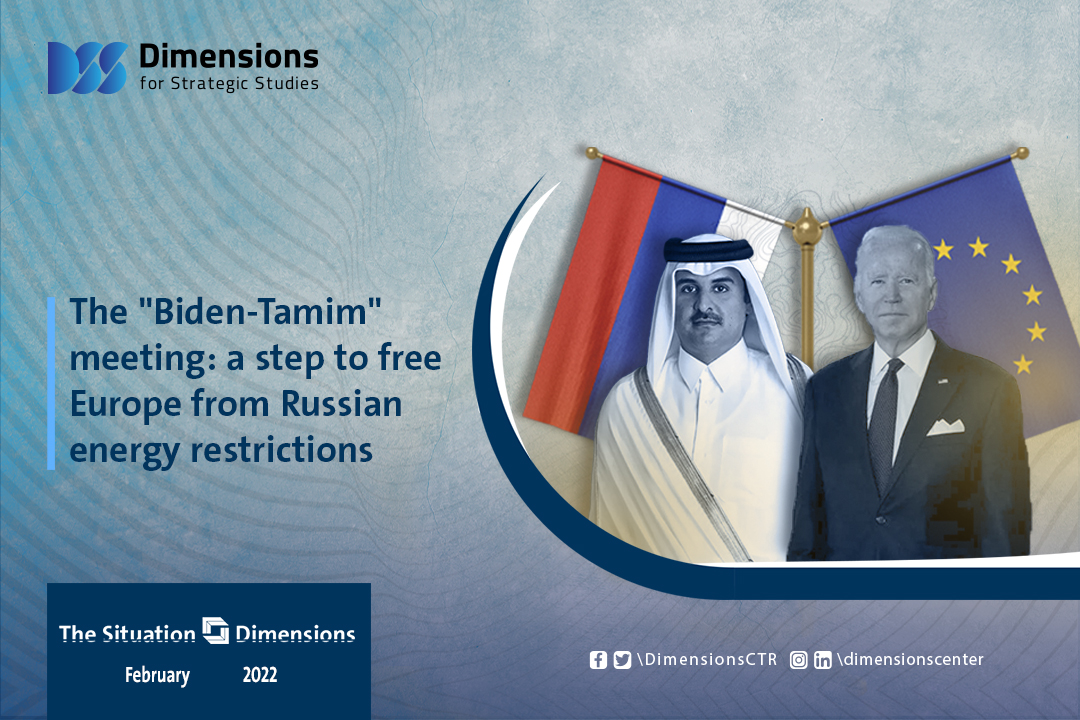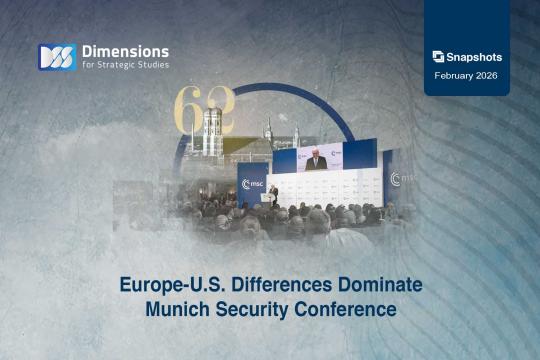
The "Biden-Tamim" meeting: a step to free Europe from Russian energy restrictions
2022-02-022157 view
In early February 2022, US President, Joe Biden met the Emir of Qatar, Sheikh Tamim bin Hamad Al Thani, in Washington DC. The two leaders reaffirmed their mutual interest in the security of the Middle East. They also discussed issues related to Afghanistan and the security of the Arab Gulf in particular.
Strengthening commercial and investment cooperation between the two countries is also discussed by the two leaders.
Discussing global energy supplies in light of the escalation between Russia on the one hand and Ukraine and Western countries on the other, was the most notable point in the meeting; especially the US expects that Russia to use gas supplies to Europe as a weapon to pressure European countries to soften their position. Russian gas supplies constitute about 35% of the imports of European countries. In 2020, the Netherlands and Germany imported nearly 100 billion cubic meters from Russia, with Italy 22 billion cubic meters.
The United States of America is making efforts to help European countries free themselves from the Russian gas dominance, by securing energy supplies from several other sources, most on top the American gas; whose exports were raised to European countries since the beginning of 2022. In this regard, the US administration wants to maximize European dependence on Qatar, as the number one source of gas in the world.
European countries are looking up to securing gas by investing in clean energy, as they have had more investments in this field for several years. This is to be added to securing energy supplies from sources inside Europe like, Britain, the Netherlands and Norway, which currently provide about 22% of Europe's gas needs. Add to that, external sources like Algeria, Nigeria, and Azerbaijan.
In light of the increasing importance of Eastern Mediterranean gas coming from Egypt, Israel, Greece and Cyprus, the possible decline in Russian gas supplies constitutes an opportunity for a number of countries to increase their share of exports to Europe.
Saudi Arabia began expanding energy investments in Europe, as Aramco, which has a production capacity of 250,000 barrels per day, has recently acquired a 30% stake in the Polish Gdansak refinery. Furthermore, the Saudi company acquired the wholesale trading rights associated with the refinery.
In addition to this deal, there is another one with a 50% share of the jet fuel marketing venture with the British company BP. Aramco, as the main competitor to the Russian oil, has expanded oil supplies to Poland to 337,000 barrels per day. The Kingdom of Saudi Arabia is expected to raise its exports to Poland by more than the mentioned number in order to meet two-thirds of Poland's needs.
The United States of America considers that Qatar is one of the main guarantors that might keep the Russian gas flow if conditions worsen. This is due to the great reserves of gas that Qatar has on the one hand, and because of the huge investments the Gulf state has in the energy field in Russia on the other. Involving Qatar can mitigate the risks of possible Russian actions.





